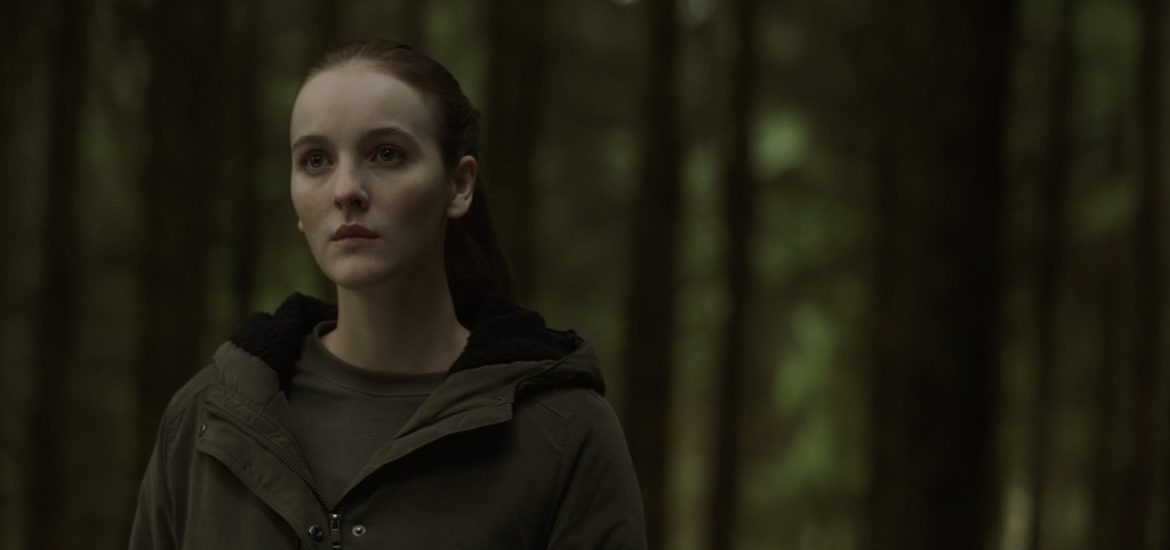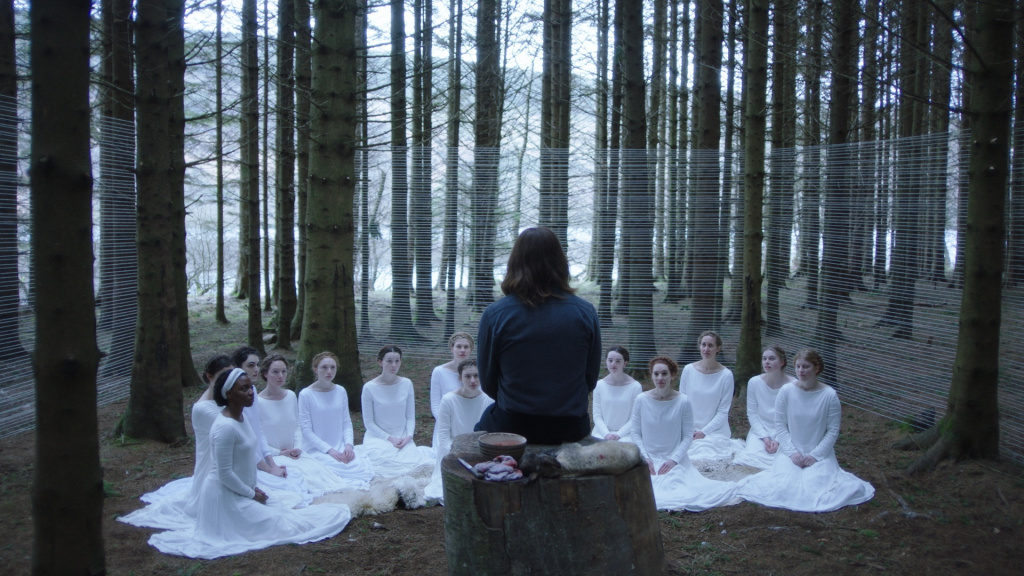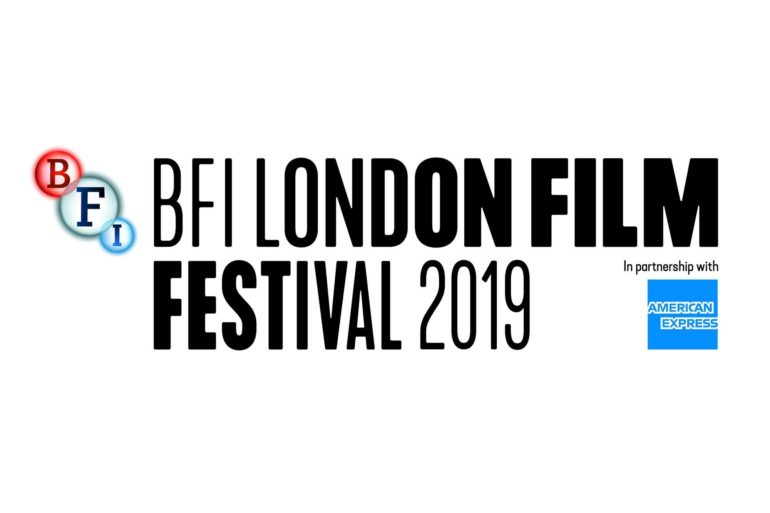Two Irish films, Joe Lawlor and Christine Molloy’s Rose Plays Julie and Małgorzata Szumowska’s The Other Lamb, will compete in the 10 strong Official Competition at the 63rd BFI London Film Festival.
In a refreshing change the competition features 60% films made by female filmmakers, including Lingua Franca from Isabel Sandoval who is the first transgender director to compete in Official Competition.
Our Official Competition showcases the best in global filmmaking. These filmmakers each have unique and distinctive voices and their films by turns reveal truths about human existence; explore stories we haven’t seen before or examine familiar ones in new ways; address pressing social and political issues, and make audiences feel and think. It’s striking that so many of the filmmakers here are telling strongly political stories, but never dogmatically so. We have selected 11 directors in these ten films who invite viewers to probe and ponder, to be changed – either subconsciously or wildly and irrevocably – by their work.
Tricia Tuttle, BFI London Film Festival Director

Joe Lawlor and Christine Molloy a.k.a Desperate Optimists’ Rose Plays Julie tells the tale of an adopted girl who seeks out her birth mother only to be told her mother has no desire to meet her. Undeterred she sets out from Dublin to London in an effort to confront her birth mother, and face her own identity.
The film stars Ann Skelly (Kissing Candice) in the lead, with support from Orla Brady and Aidan Gillen. Produced by David Collins for Samson Films, with support from Screen Ireland.

The Other Lamb is a haunting tale that follows a young woman, raised in a repressive cult led by a charismatic patriarch, who grows skeptical of his leadership after a supernatural event and begins to challenge his teachings. Raffey Cassidy (Vox Lux), Michiel Huisman (The Haunting Of Hill House) and Irish actor Denise Gough (Colette) star in the lead roles.
The Other Lamb is the first English-language feature of Polish Silver Bear-winning director Szumowska, who is best known for The Body and Mug. The script, by Australian screenwriter Catherine S McMullen, was selected for the 2017 Black List.
Aoife O’Sullivan and Tristan Orpen Lynch of Irish production company Subotica produce with Academy Award-nominated producer David Lancaster and Stephanie Wilcox of U.S.-based Rumble Films, in association with Marie Gade Denessen of Denmark’s Zentropa, and in co-production with Belgium’s Umedia. Executive producers are Julia Godzinskaya and Will Norton of Rooks Nest Entertainment, Jon Shiffman and Andrew Schwartzberg of Rumble Films, and Adrian Politowski of Umedia The film is supported by Screen Ireland.
The 63rd BFI London Film Festival takes place from Wednesda,y October 2nd to Sunday, October 13th. The full Festival programme will be announced on Thursday, August 29th.
The Competition Entries:
FANNY LYE DELIVER’D (United Kingdom-Germany, dir-scr. Thomas Clay)
Maxine Peake delivers a powerhouse performance as the titular character in Thomas Clay’s intoxicating period drama Fanny Lye Deliver’d, a woman living a humble existence with her puritanical husband John (Charles Dance) and young son Arthur on an isolated Shropshire farm in the 17th Century. The daily routines of this God-fearing family are abruptly interrupted when they discover two strangers hiding in their barn, pleading for help. When the family agrees to take them in, it is not long before their progressive ways begin to cause tensions.
HONEY BOY (USA, dir. Alma Har’el)
Alma Har’el collaborates with gifted writer and performer Shia LaBeouf to impressive effect for her first dramatic feature Honey Boy, an artful and soul-baring examination of the lingering effects of emotional abuse. Lucas Hedges plays Otis, an alcoholic with a penchant for fiercely self-destructive behaviour who makes a living starring in action films. When an accident forces him into rehab, he begins to examine his troubled past with his unstable and often emotionally abusive father (LaBeouf, playing a version of his own real-life father).
LA LLORONA (Guatemala-France, dir. Jayro Bustamante)
Guatemalan director Jayro Bustamante’s taut genre-bending thriller, La Llorona, sees elderly general Enrique Monteverde tried for a genocide he oversaw three decades earlier, who finds himself haunted by a spectre of his past; La Llorona, the spirit of a woman who has returned to seek justice for the dead. Guatemala’s lengthy Civil War and the mass murder of Mayan civilians provide a powerful historical framework for Bustamante’s third feature. This is a film about secrets and lies, rendered through a breathtaking visual language that melds horror, fantasy and courtroom drama to disarming effect.
LINGUA FRANCA (USA, dir-scr. Isabel Sandoval)
In Lingua Franca, Olivia is a Filipino transwoman and undocumented immigrant in Brooklyn, surreptitiously working as a caregiver for Olga, an elderly Russian woman in the early stages of dementia. She spends her time documenting a staged relationship with the man who has agreed to marry her so she can obtain legal status in the US. One day Olivia meets Olga’s grandson Alex, a despondent slaughterhouse worker battling his own inner demons and the pair develop a strong connection. A beautifully performed character study and an incisive critique on race and immigration in modern America, writer/director Isabel Sandoval (who also takes on the role of Olivia) has crafted a deeply moving work of great intimacy and insight.
MOFFIE (South Africa-United Kingdom, dir. Oliver Hermanus)
Oliver Hermanus follows The Endless River (LFF 2015) with Moffi, a haunting examination of the violent persecution of gay men under Apartheid. Nicholas (Kai Luke Brummer) has long known he is different, that there is something in him that must stay hidden, denied even. But in South Africa in 1981, all white young men over 16 must serve two years of compulsory military service to defend the Apartheid regime and its culture of toxic racist machismo. When fear pushes Nicholas to accept unspeakable horrors in the hopes of staying invisible, a tender relationship with another recruit becomes as dangerous for them both as any enemy fire.
MONOS (Colombia-Argentina-Netherlands-Germany-Sweden-Uruguay-USA, dir. Alejandro Landes)
Alejandro Landes delivers one of the most talked-about films of the year in Monos: a hallucinogenic, intoxicating thriller about child soldiers that has inspired feverish buzz and earned comparisons to Apocalypse Now and Lord of the Flies. High in the mountains of South America, above the billowing clouds but with gunshots heard in the distance, a motley group of child and teenage soldiers train and wait for instruction while in the presence of their American hostage, the Doctora. Despite wearing its influences on its sleeve, the film is a wildly original vision from Landes and screenwriter Alexis dos Santos; the camera prowling over mud and organic decay, cutting swathes through the jungle, all to the strains of Mica Levi’s visceral score.
THE OTHER LAMB (Ireland-Belgium-USA, dir. Małgorzata Szumowska)
Małgorzata Szumowska’s (Berlin Jury Prize-winner Mug and LFF 2015’s Body) English-language debut The Other Lamb is a beguiling, genre-tinged examination of life in an otherworldly cult. Selah was born into The Flock, a community of women and girls ruled over by Shepherd, the only male, and a seemingly benevolent but undisputed leader of the strictly regimented and isolated woodland settlement. Selah appears the most perfect of the faithful flock, until unsettling revelations see her devotion shaken. Szumowska offers an eerie ethereal vision that compellingly recalls a range of references, from David Koresh’s Waco, Texas cult to Margaret Atwood’s dystopian science fiction.
THE PERFECT CANDIDATE (Germany-Saudi Arabia, dir. Haifaa Al Mansour)
Celebrated Saudi director Haifaa Al Mansour’s The Perfect Candidate is an inspiring drama about Maryam, a highly competent young doctor whose road is paved with compromises and complications – quite literally in the case of a flooded path leading to her clinic, the dangers of which are not taken seriously by local officials. When her attempt to drive to a medical conference is stymied by not having the right papers, she finds her only solution is to sign up to be an electoral candidate, allowing her easy access through road blocks. However, when the responsibility of local politics dawns on her, she ropes in her sisters to challenge Saudi Arabia’s strict social codes and what is expected of a young woman in the country.
ROSE PLAYS JULIE (Ireland-United Kingdom, dir-scr. Christine Molloy and Joe Lawlor)
Rose Plays Julie is a frank, immersive and gripping feminist drama from Irish directing duo Christine Molloy and Joe Lawlor, also known as Desperate Optimists. During a term studying animal euthanasia, veterinary student Rose (Ann Skelly) decides to contact Julie (Orla Brady), the birth mother who gave her up for adoption. But Julie, who is now a successful London-based actress, doesn’t want to know. Undeterred, Rose will not be ignored and curiosity leads her to discoveries that shake the fragile identity she has built for herself. Molloy and Lawlor build a sense of dread inside an exquisite world of immaculate architecture, rendered through an icy performance style and enveloped by a claustrophobic soundtrack.
SAINT MAUD (United Kingdom, dir-scr. Rose Glass)
A mysterious nurse becomes dangerously obsessed with saving the soul of her dying patient in director Rose Glass’ divine debut feature, Saint Maud. Having recently found God, self-effacing young nurse Maud, arrives at a plush home to care for Amanda, a hedonistic dancer left frail from a chronic illness. When a chance encounter with a former colleague throws up hints of a dark past, it becomes clear there is more to sweet Maud than meets the eye. Glass’s gothic-tinged psychological drama is by turns insidiously creepy, darkly humorous and heartbreakingly sad; with Jennifer Ehle’s beautifully nuanced performance proving the perfect complement to Morfydd Clark’s star-making turn as the unsaintly Maud.

